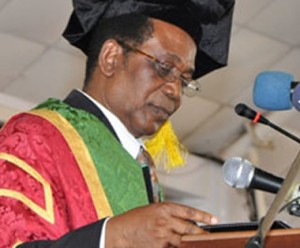Tertiary education policy document to be made public

The tertiary education policy document will soon be made available to the public, Professor Kwesi Yankah, Minister of State in-charge of Tertiary Education, has said.
“Indeed, for the first time in recent history, Ghana now has a Tertiary Education Policy Document which encapsulates cardinal policies of Government on tertiary education, from admissions through graduation, funding, graduate studies and cross-cutting issues on gender, equity, inclusiveness as well as tertiary education and the labour market,” he said.
Prof Yankah said this at the fourth session of the 11th congregation of the University of Professional Studies, Accra (UPSA).
“It is indeed a joy browsing through the policy document. It is in this document that the new centralized application to universities is outlined, seeking to reduce the stress involved in applying to multiple universities at considerable expense, to a one-stop shop, where multiple applications are rolled into a single effort, at one unit cost. No stress, no tears,” he said.
He said for government, expanding access to education, means removing all barriers and obstacles that impede access.
He said through this policy alone, Ghana‘s gross enrolment ratio at the tertiary level, currently at 16 per cent was bound to inch higher.
He said a programme of sensitizing the public and relevant stakeholder groups, about the centralized applications policy, kick start today, July 29 as they await a pilot of the project to be rolled out early next year.
Prof Yankah said even more significant, was an emerging admissions policy that introduces some flexibility in the consideration of some non-credit passes for admission into universities, and other tertiary institutions.
He said the Ministry of Education is currently liaising with the National Council for Tertiary Education to spell out the implications of this new policy for admissions to universities and other relevant institutions.
He said the status of grades like D7 in some core subjects, will thus be further clarified to give some hope to some applicants in the humanities for example, who had passed mathematics without credit, but are still being denied access, even to courses where mathematics would not stand in their way.
He said the government seeks to remove bottlenecks to admission processes and policies.
He said the new education policy document is not meant in any way, to compromise the quality of education; it rather seeks to introduce greater fairness into admission processes.
Prof Abednego Feehi Okoe Amartey, Vice-Chancellor, UPSA, said the university is currently blending professional programmes with normal degree programmes, aimed at making UPSA graduates more relevant and job-ready, through their dual qualification scheme.
He commended the graduates for finishing hard and for attaining scholarship with professionalism.
Source: GNA
